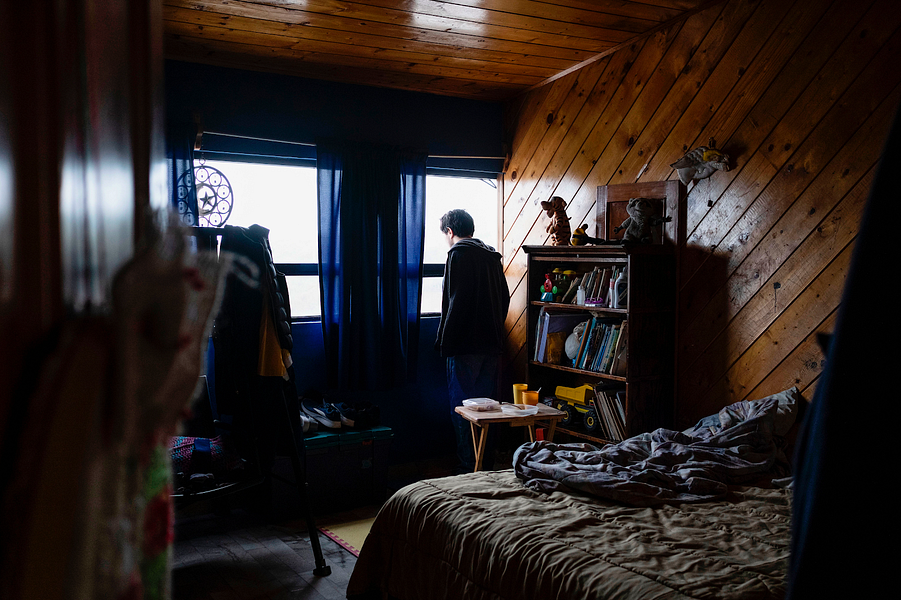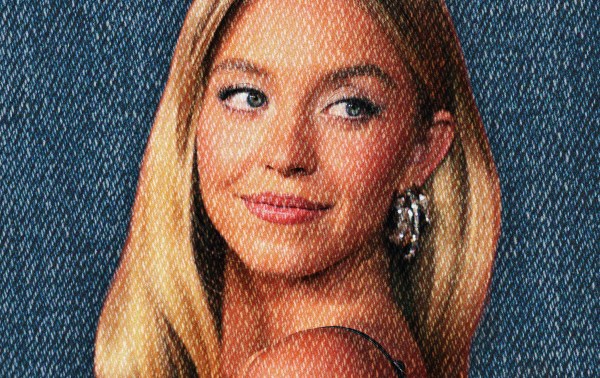A week and a half ago, President Trump was starting to think about reopening the economy. “You have tremendous responsibility. We have jobs,” he told the handful of White House reporters spread across the James S. Brady Press Briefing Room. “People get tremendous anxiety and depression, and you have suicides over things like this when you have terrible economies. You have death. Probably and—I mean, definitely would be in far greater numbers than the numbers that we’re talking about with regard to the virus.”
Only, the numbers with regard to the virus got worse. At the time of publication, 6,058 Americans have succumbed to COVID-19, and the administration’s own models now peg 100,000 deaths as the pandemic’s best case scenario. In 2018, 48,344 Americans died by suicide, per the CDC.
So the president changed course, accepting his public health advisers’ recommendations and extending current guidance—working from home whenever possible, avoiding discretionary travel, limiting gatherings to no more than 10 people—through at least the end of April. More than 300 million Americans—92 percent of the country—are currently, or about to be, under a shelter-in-place or stay-at-home order. “We had no choice. We did the right thing,” Trump said on Wednesday. “But you will have … domestic violence, you have violence, you’ll have suicide, you’ll have drug addiction. A lot of people are going to be lost.”
And Trump—who lost his own brother to alcoholism in 1982—may have a point.
“I definitely think it’s possible” that there could be an uptick in depression and suicide from coronavirus-induced lockdowns, Dr. Kassandra Alcaraz told The Dispatch. “Particularly with an extended timeframe.”
Alcaraz—the senior principal scientist of behavioral research at the American Cancer Society—is the first author of a 2018 paper that looked into the relationship between social isolation and mortality. Social isolation was positively correlated with both general and cardiovascular disease-related mortality, the research concluded, and isolation “is actually our strongest social risk for poor health.”
Former Surgeon General Vivek Murthy has spent his years since leaving government raising the alarm to anyone who will listen about what he calls “the loneliness epidemic.”
“When loneliness persists for a long period of time, and when it is chronic,” he recently told WBUR in Boston, “then we enter into a chronic stress state. And that is what has dramatically consequential impacts on our health. Because in chronic stress, we also increase our levels of inflammation in the body, which damage tissues and blood vessels and increase our risk for heart disease and other chronic illnesses.”
Alcaraz and her peers defined social isolation—which is distinct from loneliness, a more subjective measure of a person’s satisfaction with their own social bonds—as “the extent to which people are connected not only through other people but also through groups … things like, whether you attend religious services, or whether you participate in other types of clubs.”
Dr. Jamil Zaki—a psychology professor at Stanford who has written a book on kindness and empathy—thinks a zero-sum relationship between coronavirus containment and mental health presents a false dichotomy. “Not sheltering in place will create more illness, which will create more grief and more loss,” he told The Dispatch. “I don’t think that they pull against each other in any clear way.”
The pandemic is wreaking havoc on Americans’ well-being in countless ways, with 45 percent reporting worry and stress related to coronavirus having a negative impact on their mental health in a recent Kaiser Family Foundation poll. Ashley Womble, head of communications for Crisis Text Line—a non-profit emergency resource for people experiencing mental health crises—told The Dispatch the service has experienced demand spikes of up to 116 percent in recent weeks, with 77 percent of those reaching out due to stress and anxiety related to the coronavirus. “The first wave of texts about the coronavirus have been about anxiety,” she said. “We expect the second wave will be from the impact of the quarantines, including isolation and loneliness.” (Text CRISIS to 741-741 to be connected to a trained crisis counselor for free, confidential support 24 hours a day.)
Thousands are experiencing grief over the loss of a loved one, and millions over the loss of a job. Older and immunocompromised people are dealing with the anxiety of potentially contracting the virus, while otherwise healthy folks are anxious for their older and immunocompromised friends and family members. There’s fear of being unable to pay rent or put food on the table for your children. Mandatory loneliness has plunged those crawling out of the depths of depression back into the pit. And it’s an impossible situation.
“Sheltering in place, quarantine, social distance, whatever you want to call it, is absolutely critical right now to maintaining public health,” Zaki said, noting he prefers the term “physical distancing” to “social distancing.” (“Your job is not to be lonely, your job is to be at least six feet apart from other people.”) “But it also pushes against a fundamental need that people have for social connection. We need to feel connected to each other, especially during times of stress. And so when people are stressed out, they sort of seek out others aggressively. They feel the deep need to be supported and to support others. And so to be dealing with this massive stressor at the same time that we’re sort of held apart from each other, runs against everything that we need and I think can worsen our wellbeing.”
A clinical psychologist in the D.C.-area tells The Dispatch that she tries to emphasize for her patients, especially those with depression, the importance of having at least one meaningful social engagement every week. “For a lot of people, that’s hard to do, [even] in the absence of [the coronavirus].”
Some struggling with depression—like Jack Moore, a screenwriter in Los Angeles—are lucky enough to not be hunkered down alone. “I have a partner who I’m quarantined with. She’s wonderful, and having that support during this time has been great,” he told The Dispatch. But he still feels his mental illness creeping back in. “There’s just a lot more time to sit with your thoughts. And when the world is—the news is—so overwhelming, more time is not always beneficial. So I know I start to feel the weight of that, and sort of the overwhelming size of that.”
He’s still working from home, drafting scripts and running the writers’ room virtually over Zoom. “But like, for whatever reason, when I’m doing it from my home office where I also, like, play video games, it doesn’t really feel like accomplishment,” he says. “It feels like days sort of slip away.”
Normal, everyday routines naturally bolster mental health, the aforementioned psychologist said. “We don’t really think about getting outside that much,” for example, “because we go outside. You wake up, you have to go to work. You wake up, you have to go to the gym. Whatever it is.”
But in the age of coronavirus, those routines have been disrupted—workplace attire swapped with pajamas, water cooler conversations replaced with instant messages, gym regimens supplanted by home workout videos (maybe). Even the usual diversions—much-needed escapes from reality—are gone.
“In the past, one of the things that’s been a balm for my depression has always been the basketball and baseball seasons,” Moore said. “Just that massive number of games, with baseball every night basically and basketball every other night or so, just being able to sit for three hours and focus on this other thing. And so also not having that, I’ve definitely missed it more than I thought I would.”
Moore is on medication and able to access therapy online, but he says physical exercise and video chatting with friends have been the most helpful. “Running is the only thing that’s keeping me sane. Like the endorphin boost, but also just the feeling of having done something in a day,” he said.
Ironically, many of the very same social networking tools social scientists have decried for years as detrimental for mental health may now prove a saving grace. “I think that technological connections can be useful in this moment. I think they can help a lot,” Dr. Zaki said. “A lot of people have been sort of talking for years about how online technologies are ruining—they’re tearing apart our social fabric. And now those might be the threads that can best keep it together.”
The D.C. psychologist called video conferencing “a complete game changer,” noting that, while nothing will fully replace in-person interaction, “the benefits of being able to see someone, and observe their facial expressions, and make eye contact, and just have a conversation are so important.”
“If you hadn’t talked to anyone for even a day,” she added, “and you spoke to someone for even 30 minutes and you took note of your mood before that call and then after, there’s no way you’re not going to feel a lot better.”
Dr. Zaki suggested a slight shift in mindset could make a big difference for those struggling at home, referencing disaster convergence—the tendency of people to flock to crises and provide assistance. “We want to help other people in times of disaster and it can kind of feel right now like our hands are tied, we can’t do what we want to help others,” he said. “But I also think that the mere decision to socially distance … is an act of kindness for many of us. Relatively young, relatively healthy people, they’re still at risk, but their risk is certainly not as high as that of other people. And so when they make the choice to shelter in place, they’re protecting more vulnerable members of their communities. And I think remembering that our decision to be alone is one that we make together can be helpful. Just that frame on it can be helpful to realize that even our isolation, not our loneliness, but our isolation is in fact an act of solidarity.”
Unprompted, Moore reached a similar conclusion. “There’s part of me that feels like there’s almost a responsibility of, ‘keep calm and carry on’ about it. It does feel kind of like a war effort in some ways to unite around this stay at home thing. So in that way … the longer it goes on, the more it does feel like we are sacrificing something for a greater good.”
“If I focus on the day to day, I’m okay, but if I start thinking about like, ‘this is the next few months of your life,’ then I start to freak out.”
Photograph by Guillermo Arias/AFP/Getty Images.







Please note that we at The Dispatch hold ourselves, our work, and our commenters to a higher standard than other places on the internet. We welcome comments that foster genuine debate or discussion—including comments critical of us or our work—but responses that include ad hominem attacks on fellow Dispatch members or are intended to stoke fear and anger may be moderated.
With your membership, you only have the ability to comment on The Morning Dispatch articles. Consider upgrading to join the conversation everywhere.